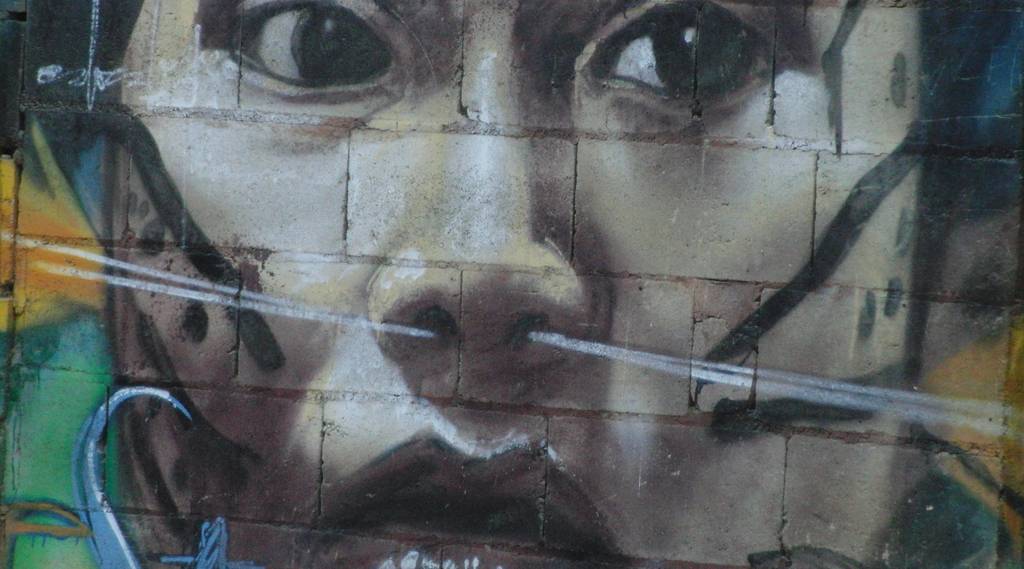
Venezuela
Capital city — Caracas
Country population
i31/05/2015/ UNDPIncarceration rate (per 100,000 inhabit…
Type of government
Human Development Index
i2016/ UNDPName of authority in charge of the pris…
Total number of prisoners
i2015/ Venezuelan Prisons Observatory / ICPRPrison density
i2015/ Venezuelan Prisons Observatory / ICPRTotal number of prison facilities
i2015An NPM has been established
Female prisoners
i2015/ Venezuelan Prisons Observatory / ICPRIncarcerated minors
iDefensoría del Pueblo (Ombudsman) / ICPRPercentage of untried prisoners
i2015/ Venezuelan Prisons Observatory / ICPRDeath penalty is abolished
Yessince 1863
Contact with the outside world
In self-governed prisons, visitors—even minors—can spend the night in the prison, and there are generally no restrictions on schedules or length of visits. Visitors sleep in “buguis”—enclosed spaces improvised with cardboard—which do not conform to security measures (cf. B2 “Deaths in detention”).
The New Prison Regime, on the other hand, reduces the frequency of visits to one per month. Male inmates are not allowed to receive visits from children or other men. Conjugal visits are also permitted once per month for 15 minutes, and inmates have no privacy. Female inmates do not have the right to conjugal visits.
Police station jails do not have the infrastructure or adequate security measures to receive visits. There is no uniform policy regarding schedules, frequency or duration, since visitation regulation is not a police duty, but is the responsibility of the correctional facilities.
In most institutions, prisons or police stations, visitors are subjected to cruel and degrading body searches. Women, who usually come to visit their husbands, children or siblings, are the main victims.
During her visit to the El Dorado Penitentiary in Oriente, a member of the OVP was forced—like the rest of the women—to undress completely, crouch in front of a mirror and push while an official of the Penitentiary Ministry shone a flashlight on her private parts. When the OVP member expressed her refusal to go through this degrading process, officials (from both the Ministry and the National Guard) warned her that if she did not do so, she would be detained.
Cell phones are used from inside self-governed prisons to extort citizens. Generally, a person is called at random and asked to deposit a sum of money to not be kidnapped.
The main cause of high occupation rates in Venezuelan prisons is procedural delays. 63.4% of the prison population is in pre-trial detention. However, this figure does not take into account the 33,000 people who are detained in police stations. The OVP points to cases in which the accused spend more than three years deprived of their liberty, without having received a sentence from Venezuela’s criminal justice system.
This situation is due, in large part, to the lack of coordination between justice administration entities and the MPPSP. The OVP states that many inmates are not transferred to their hearing when their turn comes due to lack of transportation or denial by National Guard officials.
Since January 2012, the MPPSP has implemented the “Cayapa” plan, which seeks to combat procedural delays by installing mobile courts inside prisons. However, there have been irregularities in the implementation of the plan. Inmates must relinquish their personal defence lawyer and request public defence for the ad hoc court to review their case file. Fourteen thousand people had been released as of 2014. However, a list of the people and the crimes they [allegedly] committed was never published, despite the Minister indicating at the beginning of the plan that their names and identification numbers would be published so as not to alarm the population.
The Ombudsman’s Office is the government agency responsible for defending human rights. During the 2014 Universal Periodic Review (UPR) of Venezuela, the UN Committee against Torture (CAT) expressed its concern “at the fact that the Ombudsman’s Office seems to lack the degree of independence necessary to be the national institution responsible for investigating allegations of torture and abuse”.
Venezuela signed the Optional Protocol to the Convention Against Torture (OPCAT) on 1 July 2011, but has not yet ratified it.
However, the Anti-Torture Act, passed in 2013, established the National Commission for the Prevention of Torture and Other Cruel, Inhuman and Degrading Treatment. The CAT questioned the independence of this organisation during the 2014 UPR because six of the 13 members of the team were associated with the executive branch.